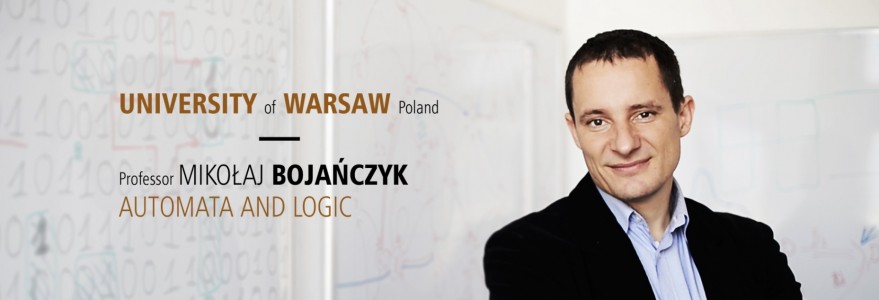He studies the structure of trees and describes their characteristics with logic expressions. However, this is not about the trees growing in public parks, but about those which make up, among others, directories on computer hard discs. Professor Mikołaj Bojańczyk is featured in the next episode of our series on the European Research Council grants laureates.
In 2009 the European Research Council, in their Starting Grant call aimed at supporting pioneering research initiatives leading to breakthrough discoveries, awarded Mikołaj Bojańczyk with 0.8 million euro for his scientific project.
Our fifth film of the series on the laureates of European Research Council Grants features professor Mikołaj Bojańczyk from the Faculty of Mathematics, Informatics and Mechanics of the University of Warsaw. More about the series.
MIKOŁAJ BOJAŃCZYK
Mikołaj Bojańczyk works in the Section of Applied Logic of the Institute of Informatics, specializing in the field of computer science theory. He became associate professor as a 32-year-old – today, he is 37 and already a full professor. He received numerous scientific awards; in 2010, he was the first to receive the Presburger Award – a distinction awarded by the European Association for Theoretical Computer Science. His lectures enjoy high popularity among students. At the Wikispace of the Faculty of Mathematics, Informatics and Mechanics, one can find, among others, the following opinions: “I left the room scientifically inspired”, “the classes are lively and enthralling”.
His project “Sosna – Expressive Power of Tree Logics”, which ended this year, is an attempt to build logical languages understandable for a computer which would allow for discerning natural properties. The research team, funded by the ERC grant, proved theorems related to the application of logic in computer science. Professor Bojańczyk admits that they managed to prove only the easy ones. He invited three researchers from Paris (one of them is professor Bojańczyk’s PhD student), two from Aachen and three of his PhD students from the University of Warsaw to cooperate with him on the project. As a scientist who has a healthy perspective on himself, his research and achievements, he concludes with a smile: At the end of the project I understood, that instead of naming it “Pine” (“Sosna” means “Pine tree” in Polish), I should have named it “Lemon”.



